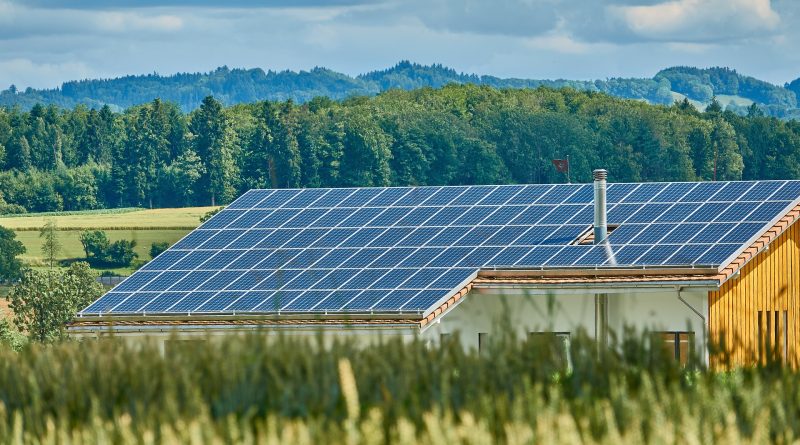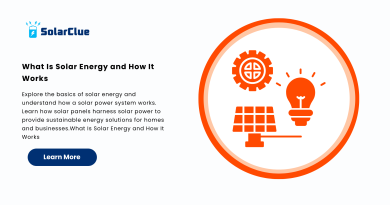Economical Solar Panel Installation in India 2024: Cost Analysis
Table of Contents
The Economic Viability of Installing Solar Panels in India in 2022
India, being one of the fastest-growing economies, is increasingly focusing on renewable energy sources to meet its growing power demands. Solar power, in particular, has emerged as a key player in India’s energy sector. With its abundant sunlight and favorable government policies, many individuals and businesses are considering installing solar panels. In this blog, we will explore the economic feasibility of installing solar panels in India in 2022 and examine the various factors that affect its viability.
Current Solar Power Scenario in India
India has made impressive progress in the deployment of solar power in recent years. The country has set ambitious renewable energy targets and aims to achieve a capacity of 280 GW by 2030, with solar energy contributing a significant portion. The government has implemented several policies and incentives to promote solar adoption, such as tax breaks, subsidies, and net metering. These initiatives have significantly reduced the upfront cost of installing solar panels, making them more accessible to the masses.
Initial Investment and Payback Period
One of the major concerns when considering solar panel installation is the initial investment required. However, thanks to declining solar panel prices and government subsidies, the cost has become more affordable. On average, the installation of a residential solar panel system in India can range from INR 80,000 to INR 120,000 per kilowatt (kW). While the upfront cost may appear high, it is crucial to analyze the payback period.
In India, the average payback period for a solar panel installation ranges from 4 to 6 years. This means that the system will generate enough electricity savings to cover its cost within this period. Subsequently, the electricity produced by the solar panels becomes virtually free for the remaining lifespan of the system, which can be as long as 25 years. This indicates significant long-term savings on electricity bills, making solar panels a cost-effective investment.
Government Incentives and Subsidies
To encourage solar adoption, the Indian government has introduced various incentives and subsidies. The most notable among them is the Central Financial Assistance (CFA) scheme provided by the Ministry of New and Renewable Energy. Under this scheme, residential consumers receive a subsidy of up to 40% of the benchmark cost, while commercial consumers can receive up to 20%. These subsidies significantly reduce the overall cost of solar panel installations and make them more economically viable.
Furthermore, state governments also offer their own set of incentives and policies to promote solar energy. Net metering is one such policy that allows consumers to sell excess solar electricity generated back to the grid, offsetting their electricity bills. Additionally, tax benefits and accelerated depreciation rates for commercial and industrial installations further contribute to the financial attractiveness of solar panels.
Operational Costs and Savings
Apart from the initial investment, it is essential to consider the operational cost of solar panels. Solar panels require minimal maintenance and have a long lifespan, typically ranging from 25 to 30 years. The cost of cleaning, inspecting, and maintaining solar panels is relatively low, making them a hassle-free investment.
Additionally, solar panels considerably reduce electricity bills. By generating their own electricity, consumers can save money on their monthly bills, especially with net metering in place. The amount of savings depends on various factors, including the size of the solar panel system, local electricity rates, and the amount of sunlight available. These savings can be substantial in the long run and contribute to the overall economic viability of solar panel installations.
The Impact of Government Policies and Tariffs
While the Indian government has been proactive in promoting solar power, occasional changes in policies and tariffs can impact its economic viability. Government incentives may be subject to revision, and the availability of subsidies may vary from state to state. It is crucial to stay up to date with the latest policies and consult with solar experts or installers to understand the financial implications accurately.
In addition, changes in electricity tariffs can affect the returns on solar investments. Fluctuating electricity rates may alter the payback period and the amount of savings generated by solar panels. Therefore, it is essential to consider the potential risks associated with changing policies and tariffs while evaluating the economic feasibility of solar panel installations.
Future Projections and Cost Trends
Solar power has witnessed a rapid decline in costs over the past few years, with India experiencing competitive bidding leading to record-low tariffs. Technological advancements and economies of scale have contributed to the reduction in solar panel prices, making solar energy increasingly economical.
As the solar industry continues to grow, it is expected that the costs will further decrease, making solar panel installations even more feasible. Additionally, advancements in energy storage technologies, such as batteries, can enhance the efficiency and reliability of solar systems. The integration of storage solutions can offer continuous power supply during non-sunny hours and maximize savings on electricity bills.
Conclusion
Embark on an economical solar journey with SolarClue® as your guide to understanding the cost of installation in India in 2024. Explore factors influencing expenses, from system size to equipment efficiency, tailored to the Indian context. SolarClue® provides insights into government incentives, tax credits, and rebates for financial benefits. Optimize your installation for cost-effectiveness with the latest technology trends. Address concerns about reliability and durability, ensuring a long lifespan for your investment. Learn about potential long-term savings and ROI, emphasizing the economic benefits of solar energy adoption. SolarClue® assists in evaluating transparent quotes from installers and exploring financing options, making the transition to solar power accessible and affordable. Join our community for shared experiences and collaborative learning on your path to an economical and sustainable future.
Frequently Asked Questions
SolarClue® guides users through a comprehensive cost analysis of economical solar panel installation in India in 2024, detailing the factors influencing the cost determination.
SolarClue® provides insights into the average cost range for economical solar panel installations in India, enabling users to estimate expenses and make informed decisions about adopting solar power in 2024.
SolarClue® assists users in understanding the role of government incentives, tax credits, and rebates in reducing the overall cost of economical solar panel installations, ensuring users are aware of available financial benefits in 2024.
SolarClue® guides users on optimizing their economical solar panel installation for cost-effectiveness, considering factors like system size, equipment efficiency, and energy consumption patterns specific to India in 2024.
SolarClue® provides insights into the role of technology advancements and innovations in driving down the cost of economical solar panel installations in India, helping users stay updated on the latest trends in 2024.
SolarClue® addresses concerns about the reliability and durability of economical solar panel installations, ensuring users receive value for their investment and enjoy a long lifespan in 2024.
SolarClue® educates users on potential long-term savings and ROI associated with choosing economical solar panel installations, emphasizing the economic benefits of investing in solar energy in 2024.
SolarClue® guides users on evaluating quotes from solar installers for their economical solar installations, ensuring transparency in pricing and helping users choose cost-effective and reputable professionals in 2024.
SolarClue® assists users in exploring financing options and payment plans for economical solar installations, making the transition to solar power more accessible and affordable in 2024.
SolarClue® fosters a community where users share their experiences with economical solar panel installations, creating a platform for collaborative learning and support in 2024.




